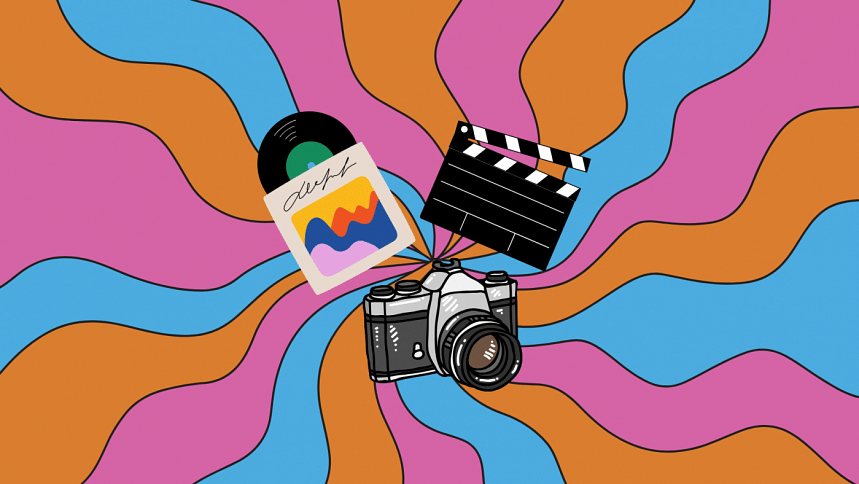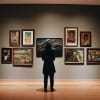The healing art can bring

Art is something we, humans, have indulged ourselves in as a species for quite a while. Art, to put it in an oversimplified and trapped manner, is a diverse range of human activities that involve expression. It can include beauty as well as emotional power. But, for all our notions and conceptions of art, there is no generally agreed-upon definition of what constitutes it. It depends upon cultures, history and most importantly, perspective.
For example, you observe a person swaying their arms around in the middle of a crowded street. What would you think they were doing? The answer could range from assuming the person has lost their sensibilities, to finding some sort of pattern or meaning, attributing it the name of performance art. It depends upon the person watching.
But what I want to focus on is the healing properties of art. It has to be noted that art cannot fully heal neuroses, psychological or mental health issues. What it can do, however, is offer ways to tame the inner turmoil within all of us.
Almost all of us experience or consume art in some form. Be it music, dance, drawing or writing. Anyone anywhere can experience art, and thus can see how meaningful it really is. Nonetheless, what about the creation of art itself?
If a child in our present society is asked what he wants to be when they grow up, and proceeds to say that they aspire to be an artist, a common response to that is: "What good is that for anyone?"
The general consensus is that the artist lives a miserable life. It's not practical. It does not contribute to society the way a doctor or engineer could. Therein lies the problem.
While it is unfortunate that the act of pursuing art poses certain constraints in terms of finances, it is still questionable to discourage a person from pursuing arts as a career.
I do agree on one thing – art is not practical. Nor should it be. However, it helps us discover ourselves. It helps people connect. Art makes us feel understood and curb our loneliness. A person who is not an artist by profession can do art to release a heavy part of their mind and heart.
Art can make us forget the monotonicity of life and can help us perceive the triviality of existence. It makes us appreciate our experience and allows us to continue creating new ones. Art can make us wonder about things we do not know. Art has the potential to give our lives a renewed sense of meaning. It is, at the same time, intensely personal.
I am reminded of a dialogue between two magicians, Alfred Borden and Robert Angier, from one of my favourite movies, The Prestige, where Robert explains why he chose magic as his life's path.
He says, "The audience knows the truth. The world is simple, and solid all the way through. It's miserable. But if you can fool them, even for a second, you can make them wonder. Then you've shown them something truly special."

 For all latest news, follow The Daily Star's Google News channel.
For all latest news, follow The Daily Star's Google News channel. 









Comments